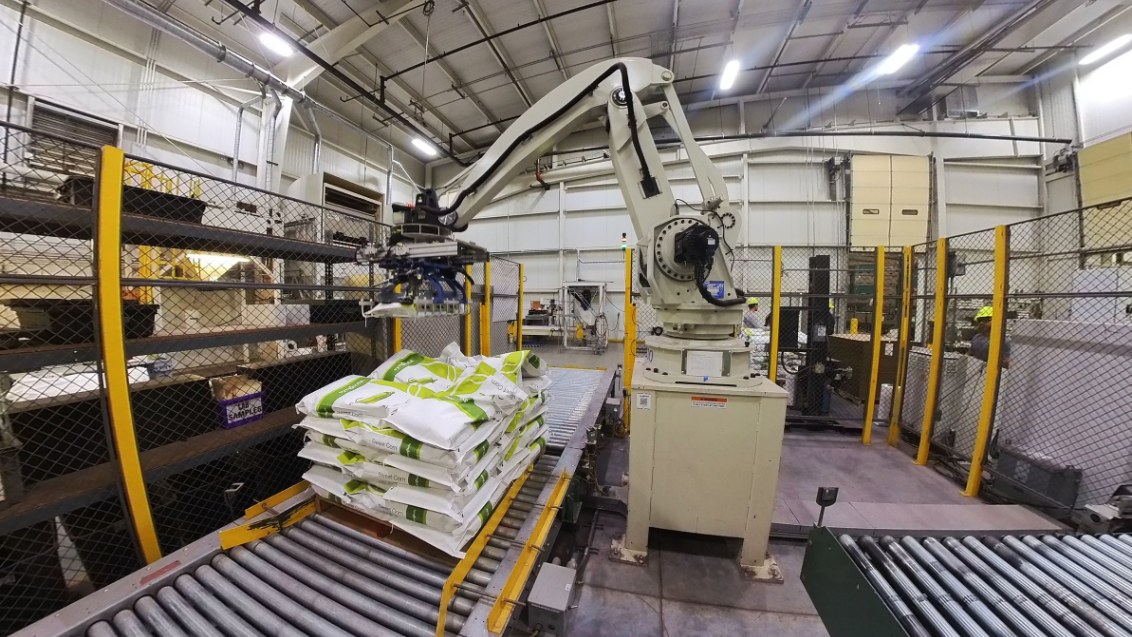USA
November 20, 2023

Ultimately, every great bite of sweet corn relies on the high-quality seed that growers plant. Syngenta is protecting that quality with investments and advancements in seed processing, which means growers get access to the best seed, leading to higher potential throughout the growing season.
“Seed quality is paramount for growers because they get paid on yield,” said Glenn McKay, Regional Portfolio Manager for Sweet Corn, Bean, and Peas. “Without high quality seed, there is no way to achieve the yield needed to be profitable.”
Seed quality innovations start in Pasco, Wash., U.S., at Syngenta’s world-leading facility in sweet corn seed conditioning and packaging facility.
“This is a strong facility because we’ve investing in technological innovation, meaning we use the most state-of-the-art technology available for seed processing,” said Casey Young, Syngenta Regional Processing Manager. “And we’re not seeing other vegetable seed companies invest in sweet corn the way Syngenta has.”
Key investments include color sorting technology and automation and robotics in packaging. These investments enhance the already stellar processes used at Syngenta, including quality control testing and seed treatment technologies. Together, these key improvements and having highly trained operators helps make Syngenta seed corn the highest quality possible.
Investing in sweet corn seed quality
“We work hard to make sure that the seed we sell to our customer is the highest quality that can be produced,” McKay said. “This means continued investment and improvement in our processing.”
Take color sorting, for example. It’s a process that examines each seed that goes into processing to check for color defects. Color changes could be due to disease, fungus, mechanical damage – anything that causes it to defect and be therefore unusable. In some sweet corn processing this is done by hand – where dozens of employees line up and review seeds on a conveyor belt to catch as many defects as possible.
While checking by human eye and hand was the industry standard in sweet corn, our team found a new solution that removes all human error and speeds up the process by more than 50%.
“The color sorters are state-of-the-art and use RGB and lasers to help with the sorting,” said Young. “They’ve made us more efficient to get our product to the market faster and to reduce the amount of seed we’re throwing away – helping us better serve our customers.”
The investments don’t stop with color sorting. Syngenta invested in a fully automated packing line that not only increases the speed at which seed gets into bags, but also does so with greater accuracy and without human interaction-meaning no risks to employees or risk of human error.
This means the seed bags are filled, sealed, and stacked onto pallets for shipping without the touch of a human hand. Compared to hand-counting all 100,000+ seeds for every bag, the speed enhancement with automation is paramount.
Seed quality checks at every step
Mechanical damage and physical seed wellbeing aren’t the only qualities Syngenta experts test for. In fact, quality testing is one of the most important steps any seed takes before it gets to grower operations.
“We test for germination, vigor, physical purity, and genetic purity to ensure that every seed batch meets Syngenta’s stringent quality specifications,” Young said. “If it doesn’t, we discard that seed and we research what happened to correct and improve for next year.”
Germination tests check to see if a high enough number of seeds will grow, vigor showcases the seeds’ durability in adverse conditions like cold weather, physical purity checks for foreign matter in seed batches, and genetic purity makes sure customers receive the specific seed they ordered. Every batch of seed we process must be tested to prove it is high enough quality for our customers.
“We make decisions based on strong statistical data analysis – not based on assumptions,” said Juhi Chaudhary, Syngenta Seed Processing Specialist. “That means we deliver high quality product that consistently performs to our customers.”